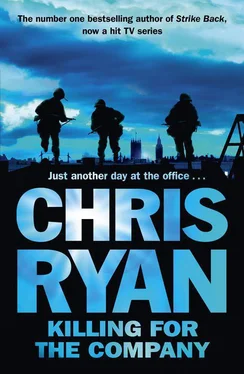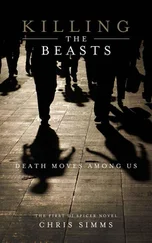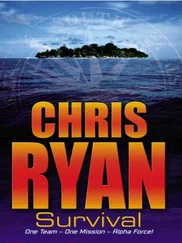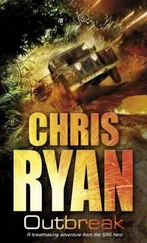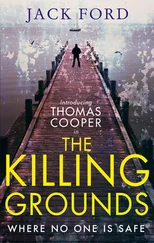One of these journalists was younger than the others. His name was Andy Carrington and he was just twenty-three. So far in his life he had seen three dead bodies. One was a tramp who’d died of exposure when Andy was on the night shift of his local paper back home in Norfolk. One was a car crash victim who’d been hit by a drunk-driver just after chucking-out time, and Andy had been surprised by how little blood there had been. The third had been his grandfather, lying on a bier in the funeral home, as cold as ice but immaculately presented, his skin shiny and his thin hair neatly combed.
None of these corpses had prepared him for the sight of the bodies being taken to the air ambulances that evening.
He’d run over to the point, about thirty metres from the throng of other journalists, where two policemen were holding up the cordon to allow a stretcher carried by two paramedics to pass. As he ran in that direction he was vaguely aware that none of his colleagues was doing the same. He put that down to his own hunger — his determination to show his mettle as a journalist. The previous night he’d been reporting on a film premiere from Leicester Square, and now he wanted to show his quality at reporting serious news rather than tittle-tattle about Angelina Jolie to be printed alongside a shiny picture of her, all lips and tits.
‘Stay away, son,’ one of the coppers called when they saw him approaching. It didn’t sound so much like an instruction as a piece of advice, and it was advice this young man was quick to ignore. The stretcher had passed the cordon now and the policemen had lowered it again.
‘Honest, mate, it’s not something you want to…’
Andy stopped.
He was about two metres from the stretcher when he saw the corpse in its entirety. It was a woman. He could tell that from the remnants of her clothes rather than her features, and this was because she no longer had any features. Her face was no longer a face. It was just a canvas of bloodied pap and shattered bone. There were two indentations where the eyes had once been, and a vague protrusion for the nose. Her left jawbone had been shattered and was now hanging from the right-hand side of her face, as though attached by the flimsiest of hinges. Her neck and chest were darkly stained, as if she had vomited blood.
But it was none of this that chilled Andy’s soul and made him want to retch. It was what he saw further down the woman’s body. She had obviously been pregnant. Her abdomen had spilled open and he could quite clearly see — bloodied and contorted but quite distinct — the figure of her unborn child.
It took a split second for Andy to take all this in. A split second to yank his gaze away as a terrible nausea suddenly overcame him, accompanied by a curious sense of shame, as though he had looked at something that should never be looked at. He realised why none of the older hands from the press corps had joined him.
‘If you’re going to chuck up,’ the same policeman who had warned him away from the stretcher called to him, ‘don’t do it near us, eh?’
Andy took a deep breath and tried to settle himself. ‘They, er.. they found any survivors?’ he asked, more to keep his mind off the sickness than anything else.
The two policemen glanced at each other. ‘They’ll brief you when there’s anything to know,’ the copper replied, before looking back over the cordon. ‘You might want to move along now. There’s another stretcher coming.’
Andy looked over towards it. Two more paramedics, one more body. He could see its outline, but he couldn’t bear to look any closer. He nodded at the policemen and started staggering back towards the press pack. The image of that woman and her unborn baby was burned into his mind. He knew it would haunt him for the rest of his life.
As he approached the others, his cameraman came running up to him. ‘TX in two, Andy. Jesus, mate… you all right?’
Andy didn’t answer. He had to get his head together. Formulate the words of his upcoming broadcast in his mind. Settle himself.
Easier said than done.
He was still pale and nauseous as he stood between the cameraman and the cordon, a radio mike clipped to his lapel. The words he had cobbled together tumbled from his wind-bitten lips.
‘At approximately twenty past five this afternoon, an explosion is thought to have taken place here on the Bristol to London line.’
The image of the baby flashed in front of his mind, and he stumbled. The cameraman made a rolling gesture with his right arm to encourage him to keep talking. Andy took a deep breath.
‘Although the authorities have yet to make a statement regarding the source of the explosion, there seems little doubt that it is linked to almost identical events that occurred at the same time on the outskirts of Washington DC, Paris and Delhi.’
He paused, so that live feeds showing scenes of similar devastation across the globe could be transmitted into the living rooms of the country: daytime in Washington, still night everywhere else, but chaos and calamity and weeping no matter what the hour. In Paris, the camera cut to the sight of a screaming young child being restrained by her tear-sodden mother, clearly howling for a loved one — perhaps her father — on the wrecked train. The journalist could only hear the sounds through his earpiece, and not see the images. He was thankful for that.
‘Paramedics have been combing through the wreckage for a little more than an hour,’ the young journalist continued, his voice wavering a little. ‘So far, the only passengers I have seen have been… have been dead.’
He paused.
‘As we stand here,’ he continued, his voice a little quieter than before, ‘relatives of the passengers on the 16.55 are beginning to gather in a neighbouring field, anxious for news of their…’
He felt his voice cracking.
He turned, and looked back towards the train. The floodlights. The neon blue. The smoke.
The woman.
The child.
He tried again. ‘Anxious for news of their loved…’
But his voice failed him once more, and to his horror he realised he was breaking down live on camera. He shook his head. ‘I’m sorry,’ he said, before putting one hand to his forehead. ‘ I’m very sorry… ’
With these words Andy Carrington walked out of shot, pulling his mike from his lapel. The camera didn’t follow him. Instead it kept itself firmly focused on the train. The cameraman could see that Andy was not in a state to talk to the nation, and some sights, after all, need no words to accompany them.
20.00 hrs.
Albany Manor was a grand estate in rural Buckinghamshire, surrounded by acres of woodland and boasting its own chapel, paddocks and enough outbuildings to house a small village. The phone calls had started a minute after the blast and were still continuing. Alistair Stratton had declined to take any of them.
Stratton’s PA, Christopher Wheatly, was an eager young man who hoped one day to go into politics himself. This was why he was willing, despite his trust fund and his lofty sense of entitlement, to suck up to the one-time British PM turned Middle East peace envoy. The outside world saw in Alistair Stratton a man of charm, a man whose conviction was obvious even to those who disagreed with him. Wheatly knew a different person: a person of quick temper and obstinacy, small-minded in many ways and a difficult man to like. When the White House came on the line at 20.10 hrs UK time, Wheatly knocked on the door of his boss’s office.
‘Come.’
Stratton was standing in front of a painting to which an entire wall of the office was devoted. Wheatly knew nothing about art — it wasn’t his thing — but he did know that this particular painting, a hellish scene of burning buildings and dead bodies, was by Hieronymus Bosch and had been acquired anonymously at a Berlin auction for the sum of twelve million euros.
Читать дальше
